A ubiquitous biological material, keratin represents a group of insoluble, usually high-sulfur content and filament-forming proteins, constituting the bulk of epidermal appendages such as hair, nails, claws, turtle scutes, horns, whale baleen, beaks, and feathers. These keratinous materials are formed by cells filled with keratin and are considered ‘dead tissues’. Nevertheless, they are among the […]
For the last four decades, the development of robotic hands has been the focus of severalworks. However, a small part of those approaches consider the exploitation of parallelism of FPGA-based (Field Programmable Gate Arrays) systems or discuss how using bioinspired optimization algorithmscould improve the mechanical and controller components. This work considers […]
Graphene oxide (GO), which has many oxygen functional groups, is a promising candidate for use in moisture‐responsive sensors and actuators due to the strong water–GO interaction and the ultrafast transport of water molecules within the stacked GO sheets. In the last 5 years, moisture‐responsive actuators based on GO have shown distinct […]
Compound eyes are natural multiaperture optical imaging systems and have substantial potential in the field of modern optics. However, both natural and artificial compound eyes are composed of ommatidia with fixed focal lengths, and thus incapable of variable‐focus imaging. In this study, inspired by the tunable crystalline lens of human eyes, […]
Administration of drugs via the buccal route has attracted much attention in recent years. However, developing systems with satisfactory adhesion under wet conditions and adequate drug bioavailability still remains a challenge. Here, we propose a mussel-inspired mucoadhesive film. Ex vivo models show that this film can achieve strong adhesion to wet […]
The purpose of the Biomimicry Institute is to naturalize biomimicry in the culture by promoting the transfer of ideas, designs, and strategies from biology to sustainable systems design.We accomplish this by tackling one massive sustainability problem at a time through our Youth Design Challenge and Global Design Challenge, mobilizing tens of […]
Kraig Biocraft Laboratories, Inc. (Trading Symbol: KBLB) is an innovative and aggressive biotechnology company focused on the development and commercialization of spider silk. Based on proprietary genetic engineering technology, Kraig Labs has successfully developed and produced next-generation polymers and protein-based fibers including recombinant spider silk. Our work has recently succeeded in […]
Organization, Wyss Institute
At the Wyss Institute, we leverage recent insights into how Nature builds, controls and manufactures to develop new engineering innovations – a new field of research we call Biologically Inspired Engineering. By emulating biological principles of self assembly, organization and regulation, we are developing disruptive technology solutions for healthcare, energy, architecture, […]
Nacre, the iridescent material that lines mollusk shells such as mother-of-pearl and abalone, has long been a prized find of beachcombers and shell collectors, due to the natural beauty and variety of color that can be found therein. But scientists and engineers have also long marveled at and studied nacre; it’s […]
The Bio-inspired Ray for Extreme Environments and Zonal Exploration (BREEZE) combines inflatable structures with bio-inspired kinematics to create a highly efficient flier to explore the Venus atmosphere. This flier would take data while below the main cloud
The National Center of Competence in Research (NCCR) Bio-Inspired Materials was launched in June 2014. Its vision is to establish an internationally recognized hub for smart materials research, education, and innovation. Its home institution is the University of Fribourg, with the Federal Institutes of Technology in Lausanne (EPFL) and Zurich (ETHZ) […]
Learn about our two Decals!
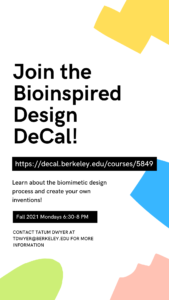 Click here to find out more about our Fall Bioinspired Design Decal and our Spring Bioinspired Design in Action Decal – ALL MAJORS are welcome.
Click here to find out more about our Fall Bioinspired Design Decal and our Spring Bioinspired Design in Action Decal – ALL MAJORS are welcome.Berkeley BioDesign Community
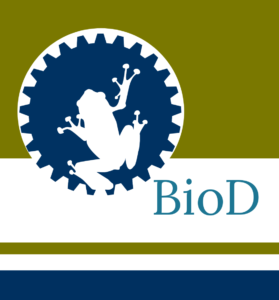 Click here to learn about the BioD: Bio-Inspired Design @ Berkeley student organization or here to signup for more info.
Click here to learn about the BioD: Bio-Inspired Design @ Berkeley student organization or here to signup for more info.Search
Student Login

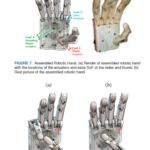

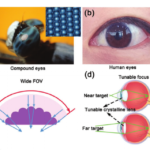
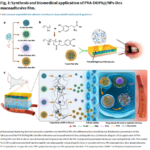
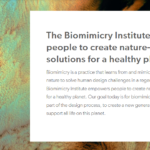
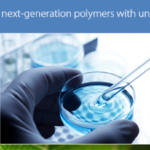
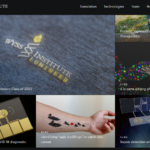


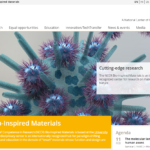
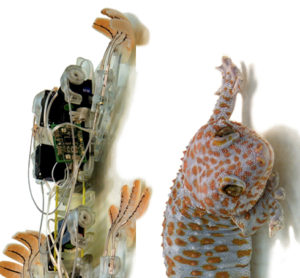

I imagine that the neurological circuits underlying these processes are governed by both 2d spacing maps with their brains as…
to reduce the impact of car accidents, it may be possible to study the force diverting physics of cockroaches to…
you see this type of head-bobbing stability in many avian creatures related to pigeons like chickens. the head ability to…
not like they taught horses how to run! this is an example of convergent evolution where both sea creatures and…
The brain functions in a similar way with neuronal connections. our brains are able to utilize the multiplicity of connections…